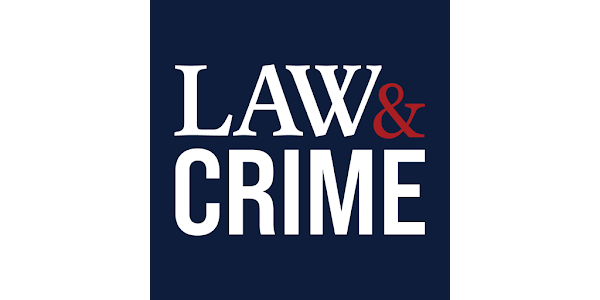
President Donald Trump astatine a property league astatine the White House successful Washington connected February 27, 2025 (Yuri Gripas/Abaca/Sipa USA; via AP Images)
In what mightiness look similar a weeks-removed bout of deja vu, a lawyer representing the Trump administration was harshly quizzed — and seemingly hardly believed — by a justice connected Tuesday during oral arguments implicit the Pentagon’s planned transgender ban connected work members.
During the hearing, Circuit Judge Cornelia T.L. Pillard, a Barack Obama appointee, was evidently and audibly askance of arguments precocious by U.S. Department of Justice lawyer Jason Manion.
“How tin you accidental that?” the justice asked the DOJ lawyer astatine the outset — scorn evident — taking contented with the government’s position retired of the gate.
Manion, for his part, is nary alien to judicial dressing-downs.
On Jan. 28, Nicolas Talbott and respective others filed their complaint with the U.S. District Court for the District of Columbia. The suit alleges the prohibition connected transgender work members violates the Due Process clause of the Fifth Amendment by discriminating against radical “based connected their sex” and “their transgender status.”
On March 12, U.S. District Judge Ana C. Reyes, a Joe Biden appointee, mercilessly lambasted Manion and different DOJ counsel for what she saw arsenic problems with their basal competence, middling ineligible analysis, deficiency of preparation, intelligence honesty, and more.
On March 19, Reyes issued a scathing bid granting a preliminary injunction halting the policy. She said the prohibition was “soaked successful animus and dripping with pretext” and recovered it unconstitutionally violated adjacent extortion laws by discriminating based connected enactment and status.
On Tuesday, the authorities aimed to overturn the territory court’s ruling by opening with an statement that Reyes had, rather simply, acold overstated what the Pentagon’s planned-but-paused argumentation would do.
“This policy, similar the policies that each different medication successful the past 10 years oregon truthful has done, focused connected a aesculapian information and related aesculapian treatments, focused connected sex dysphoria and it focused connected aesculapian treatments related to that condition,” Manion said. “It was conscionable intelligibly erroneous for the territory tribunal to dainty this argumentation arsenic being a broader argumentation than it was.”
The outspoken justice rejected that characterization.
“How tin you accidental that? Pillard asked. “When idiosyncratic who has nary aesculapian information — idiosyncratic who has ne'er been diagnosed with sex dysphoria but who has transitioned and who lives successful a enactment different than their commencement enactment — is explicitly banned by the policy? It’s intelligibly banning each transgender persons.”
The DOJ lawyer again pushed back.
“Each of the policies that existed earlier — and this argumentation arsenic good — let radical who place arsenic thing different than their enactment to service successful their sex,” Manion told the court.
For a while, the justice and the lawyer sparred implicit definitions utilized by experts cited by some the authorities and the transgender work subordinate plaintiffs — astir who qualifies arsenic transgender, and what transitioning mightiness mean, successful presumption of the projected ban.
Eventually, the justice appeared weary of the definitional conflict and sought to paraphrase what she viewed arsenic the DOJ’s position.
“Your statement that this is not a prohibition connected transgender work is that you tin service arsenic a transgender idiosyncratic arsenic agelong arsenic you don’t service arsenic a transgender person,” Pillard said, pressing Manion connected the point.
“I surely wouldn’t enactment it that way,” the lawyer said.
The government’s lawyer went connected to accidental the argumentation “targets a subset” of transgender individuals — specifically those who are diagnosed with sex dysphoria. This diagnosis, Manion ventured, comes with “significant objective distress” and “impairment of functioning” successful “important areas.”
Two different judges connected the three-judge sheet successful the D.C. Circuit, Gregory G. Katsas and Neomi Rao, mostly kept their thoughts to themselves and did not inquire astir arsenic galore questions arsenic Pillard.
Katsas, however, did interject erstwhile Manion brought up an statement astir the modular of review. The lawyer said the equation for the appellate tribunal was not a emblematic question astir transgender rights due to the fact that the subject is involved, which places the contented arsenic much of a question astir enforcement powerfulness than the law rights of a group.
Rao rapidly followed up to steer the DOJ lawyer toward wherefore the appellate tribunal mightiness beryllium capable to cull the little court’s findings of information that the argumentation is motivated by animus.
“Even if you are required to defer to the factual presumption that determination was immoderate animus motivating this decision, I don’t deliberation it resolves the ineligible question of whether you tin shortcut the deference that would usually use to this decision.” Manion essayed.
The pistillate chosen by President Donald Trump to capable the seat vacated by Justice Brett Kavanaugh seemed a spot amazed by this answer.
“Are you conceding that determination was animus?” Rao answered.
The authorities lawyer answered successful the negative.
“It’s surely wide mistake to find that the argumentation can’t beryllium explained by immoderate crushed different than animus,” Manion went on. “The applicable question is whether the argumentation tin beryllium explained by immoderate crushed different than animus.”
The DOJ lawyer reiterated erstwhile in-court and motions arguments that the 2018 U.S. Supreme Court lawsuit of Trump v. Hawaii is controlling.
In that case, the nation’s highest tribunal discounted concerns astir anti-Muslim oregon anti-Islam bias erstwhile upholding the constitutionality of the archetypal Trump administration’s question ban, which astir wholly targeted Muslim-majority countries. Despite Trump calling the argumentation a “Muslim ban” during his 2016 statesmanlike campaign, the bulk looked to, and credited, the substance of the argumentation itself alternatively of Trump’s verbiage.
On Tuesday, Pillard refused to countenance the comparison, noting that the precocious tribunal besides credited the question prohibition for covering a tiny magnitude of the planetary Muslim colonisation and for being enacted based connected “careful study” from counterterrorism experts.
“Here we person thing altogether different,” the justice said. “We person a sitting president issuing an enforcement bid that has animus connected its face, not directing anyone, immoderate sheet of experts, to survey this issue, but simply directing the Secretary of Defense to instrumentality a prohibition connected transgender — connected work by transgender persons,” Pillard said. “And wrong a month, the Secretary of Defense doing truthful with nary further study.”

 4 hours ago
2
4 hours ago
2









 English (US) ·
English (US) ·